Moving to South Africa
South Africa is a country filled with natural beauty and wilderness paradise. The 472,000 square miles are filled with vast plains, exotic wildlife, stunning coastlines, and spectacular mountains. It’s soil is rich in minerals and precious materials, like diamonds and gold, while game preserves throughout the nation offer the opportunity to see lions, elephants, zebras and more in their natural habitats. The population of around 60 million is known for being one of the friendliest in the world. An array of landscapes and cultures, relatively low living costs and sunny climate help to make South Africa a popular destination for Brits moving abroad.
We understand that every international relocation is different. We can deliver the perfect relocation for you and your family whatever your requirements. Get a free quote with Gerson Relocation today.
Orientation
The Republic of South Africa is located on the southernmost portion of the African continent. It has a mild climate, which is also dry and sunny. This differs depending on where in South Africa you are, for example, Cape Town’s proximity to the ocean keeps the climate milder than Johannesburg with its higher altitude and dry climate. The seasons in South Africa are reversed to those experienced in the UK, with Summer lasting from October to March and Winter is from June to September. Though the sun and warm weather is great, it’s important to take precautions against the high ultraviolet rating in South Africa.
South Africa has 3 capital cities, Cape Town, Pretoria, and Bloemfontein, with the administrative, legislative, and judicial power shared among them respectively. Cape Town is located to the Southwest of the country and has a coastline on the Atlantic Ocean. Pretoria is to the Northeast further inland and Bloemfontein has a more central location.
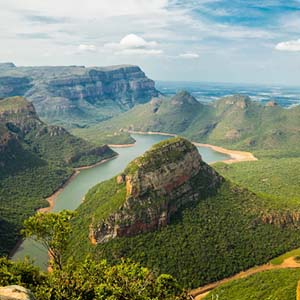
Things to Know Before Moving to South Africa
If you are thinking about moving to South Africa there are a few things you should make sure that you are aware of before you commit to the move. Although South Africa has 11 official languages, English is the language of business and is widely spoken in all cities. You will also need to apply for a permanent residence permit. Some other things to be aware of include:
- Healthcare is lacking – consider private healthcare if you are moving to the country as public health services are ranked much lower than most large nations.
- Traditions and customs vary – there are a wide range of different customs and traditions in each city with many different languages spoken.
- Life is affordable – the cost of goods and general living is much lower than many western cities and almost half the cost of living in London.
Preparing to go
If you are relocating for a work position in South Africa, your employer should be able to assist you in acquiring the correct documents, including passport, visa and appropriate permits for your trip and stay. You should make the most of any assistance offered to you to ensure that you are acting in compliance with the law.
Our relocation consultants are here to support you throughout your immigration process. View our Visa and Immigration services today to see how we could help you.
Passports and Visas
Before travelling abroad for any length of time, all parties must have a valid passport. Passports should be valid for longer than your intended stay to avoid any issues when attempting to return to your home country.
Visas are required to authorise your presence in another country. There are many types of Visa dictating various purposes and lengths of visits to South Africa. Details of the types of visas and other entry requirements can be found on the Home Affairs website of the Republic of South Africa. If moving to South Africa for work purposes, you will likely require a work visa. Furthermore, employers may provide assistance or take responsibility for the Visa process, and it is strongly advised to accept any professional assistance offered to you to ensure the correct approvals for entry to South Africa.
Applying for Visas will require an array of documentation to be presented, including passport, proof of address, birth certificate and more. You should allow ample time before departure to apply for the correct Visa as it can be a lengthy approval process.
Residence Permits
There are many types of residence permits available to British expats moving to South Africa. This will differ depending on the type of work you are pursuing and the length of time you plan to stay. The following are the permits available to Britons moving to South Africa:
- Business permits: For businesses pursuing a South African base to their business or looking to invest in local companies.
- General work permits: For people searching for work in South Africa.
- Critical skills work visa: This visa applies to individuals looking to work with skills and qualifications that are deemed critical by the South African government.
- Retirement permit: For those looking to retire to South Africa.
Temporary residence permits are also available, and they will grant you the right to live and work in South Africa for up to 3 years. During this time, other permits for a longer stay may be applied for. Bear in mind that the application and approval process can take up to 18 months and you will be required to supply various documents, including your passport, birth certificate, medical certificate and more. To start the application process, you need to apply either at a Visa Application Centre in South Africa or the High Commission of South Africa in the UK.
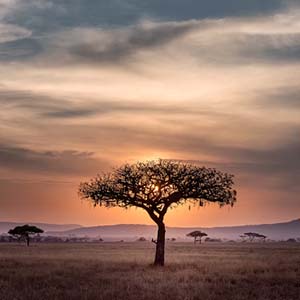
Moving to South Africa with Household Goods
If moving to South Africa for a prolonged period of time, you may want to take a substantial number of personal belongings with you. Prior to packing your household shipment, you should get in touch with your local Embassy to receive an up-to-date list of restricted and prohibited items and accompanying documentation that is required. Some employers place restrictions on the size or volume of your shipment so you should check that this is not the case or act accordingly.
It is important to consider the size of your accommodation or new home in South Africa before bringing all of your belongings with you from the UK. New items are subject to duties and tax, as are antiques and inherited items without the appropriate documentation. Furniture, housewares, and other large items are all available to be purchased locally.
Restricted and Prohibited Items
Certain items are restricted by quantity when being imported into South Africa. These include firearms, tobacco products, wine, spirits, and prescription drugs. Additionally, some items will require an import permit to allow entry or avoid duty tax.
Other items are prohibited and are not allowed into South Africa. These include:
- Narcotics and drugs
- Beeswax, honey, bees, and bee larvae
- Pornographic material or obscene literature
- Seeds, bulbs, plant material, and raw cotton
- Weapons including knives, explosives, and ammunition
- Uncooked meat
- Uncut diamonds
- Unwrought gold
Additionally, foreigners visiting South Africa may have up to R5,000 upon arrival to and departure from the country. All currency, including foreign, must be declared upon arrival.
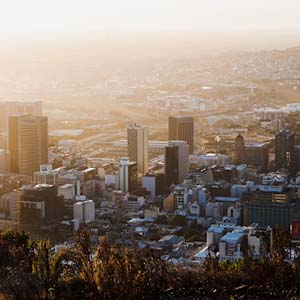
Moving with Pets
When moving to South Africa with a pet, you must complete an ‘Application to Import Animals to South Africa’ form. This must be filled out and sent to the Director of Animal Health at Import/Export Control. Be aware that the application will incur a fee depending on how many pets you wish to import. Following the receipt and process of your application, you will then be sent a Veterinary Import Permit and Veterinary Health Certificate. The health certificate should be completed and signed by your home veterinarian. Permits are valid for a certain and limited time so you should be prepared to arrange travel during the given period.
You will need to contact your airline for specific requirements for pet transport. Pets are typically transported in the temperature-controlled hold of the plane. Upon arrival at customs, you will need to present your Veterinary Import Permit, Health Certificate and a Rabies Certificate dated at least 30 days but no more than 12 months prior to your departure date.
There is no set period of quarantine in South Africa for pets, so long as they meet all requirements of import permits and licenses. For more information, contact the Director of Veterinary Services.
Taking a Vehicle
If looking to drive in South Africa, you may want to take your car when relocating. You should check that there is no restriction placed on your household shipment by your employer that prevents larger vehicles or larger items.
One vehicle per family may be imported duty-free to South Africa if the vehicle has been owned and registered to the owner’s name for at least 12 months prior to departure. There will instead be a VAT tax based on the car’s value. You should therefore obtain the valuation in your home country before applying for shipment at a South African consulate. Details of the application for shipment can be found on the South African Government website and import permits can be found on the ITAC website. Any additional vehicles will be charged duty tax and a surcharge as well as the VAT. Vehicles should not be sold, given away or leased for 2 years following its importation.
Financial Services in South Africa
When moving to South Africa you will find that the banking system is both sophisticated and competitive, with full service-banking provided by a range of branches. The largest banks in South Africa providing personal banking services are:
There are also several international banks that have branches here.
You can open a local bank account as soon as you arrive in South Africa which will allow you to access local ATMs via your debit or credit card. To open a bank account, you will need to provide a temporary or permanent residence permit, passport and proof of your address in South Africa. If you want to open a checking account, this could also require your work permit as well as a letter from your employer that confirms your employment and forthcoming funds.
Opening times are typically 8:30 am to 3:30 pm on weekdays and 8:30 am – 11 am on Saturdays. Online banking will be available to conduct business outside of these hours.
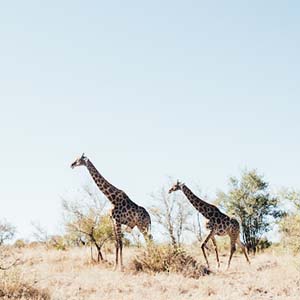
Currency and Exchange
In South Africa, the currency used is the Rand (R), which is made up of100 cents. Notes are produced in denominations of R 10, 20, 50, 100, and 200 and coins are 5-, 10-, 20-, and 50-cent pieces as well as R 1, R 2, and R 5 coins. Major credit cards and debit cards are widely used, as chip and pin technology is available. However, Cash is also still widely used, particularly in the more rural areas of the country, so carrying cash is advisable.
It is possible to exchange money at banks, travel agencies and large hotels. Rates can vary hugely, so it’s recommended to compare rates before making a decision. You should keep receipts from exchanging funds so that you can re-convert funds when you leave the country.
Accommodation in South Africa
Types of housing in and around South Africa’s cities are varied. There are luxurious wine estates, beautiful homes with gardens, pools, game farms and small cottages. Apartments, too, can range from small studios to magnificent penthouses. Real estate agents will have portfolios including all types of housing.
To begin your house search, it is recommended to contact an estate agent, ask colleagues, or check advertisements on websites and in the newspaper. You should determine the neighbourhood, suburb or area which suits your specific requirements, including commute distance, proximity to schools and price. There is plenty of available property however there can often be delays up to a month caused by inspections, negotiations and utility connections. For this reason, it’s a good idea to organise short-term accommodation until all arrangements for occupancy are final.
Real estate professionals of relocation services can save you a significant amount of time and effort when you are relocating to South Africa. They can help you navigate many complicated processes, from visas to home searches. Gerson Relocation’s international relocation services can provide assistance from well before your relocation to well after your arrival.
To rent or buy housing
It is permitted for foreigners to buy property in South Africa, however, the rising costs of property in urban and coastal areas may be discouraging. Generally, renting accommodation upon arrival in South Africa is a good idea, even if it is only for the duration of the process of purchasing a home.
Many expats choose to rent when moving to South Africa. Rental properties that are furnished can be found but there will likely be more unfurnished apartments. When a property is listed as furnished, it will include all furnishings except in some cases linens, dishes, and other cookware. On the other hand, an unfurnished property will have no furniture at all except an oven.
Rental Leases & Fees
Leases can be found that are short term or long term. Short-term leases have a general minimum period of 3 months while long-term leases have 1- or 2-year minimum leases. Tenants are usually required to give one or two months’ notice before terminating a contract early. Before you sign a lease, you should thoroughly inspect the property and agree with the landlord on the condition of the accommodation at the time of inspection.
The rental commission fee is paid by the landlord. Deposits are typically a minimum of 1 months’ rent but can be more depending on the location. Rent is then payable monthly and normally includes utilities except gas and telecommunication connections.
Getting Around
People moving to South Africa will find that at least one vehicle is necessary for local and regional travel as local public transport is either non-existent or cannot be relied on. Small cars are better suited to narrow roads and parking spaces and all cars in good condition are perfect to be imported to South Africa. If planning to make frequent trips to bush areas four-wheel vehicles are recommended, but not required for normal rural and urban travel.
Driving Licenses and Permits
When living in South Africa, your home driver’s license is valid for up to 1 year if it includes a photo and signature of the license holder. During this period, it can be exchanged for a South African license when accompanied by a letter from the respective embassy confirming validity which is translated into one of South Africa’s 11 languages. More information on Driving Licenses can be found on the South African Government website.
An International Driver’s Permit (IPD) is a certification or a national license in 10 languages. This can save delays if you are involved in a traffic incident or collision. This is particularly useful in South Africa if your home license is not written in English, Afrikaans, or Dutch.
Driving in South Africa
There are over 28,000 miles of paved roads in South Africa providing an impressive network across the country. This is accompanied by around 100,000 miles of unpaved roads. Roads of every kind are well maintained, with dirt roads being well-graded for use.
In most cases, road signs feature international pictographs or English words. In some cases, however, they are only in Afrikaans. This includes some destination signs, such as ‘Kaapstad’ for Cape Town, and other instructions, such as ‘Slegs only’ meaning ‘turning lane only’. Speed limits, which are strictly enforced in South Africa, are generally 75mph on highways and around 37mph in urban areas. If found to be breaking a law, you could be fined on the spot.
In major cities, car theft can be a major problem. When driving a luxury car or driving at night, be extra careful as car thieves can be dangerous.
Vehicle Insurance
When living in South Africa you must procure third-party insurance from a South African insurance firm. As South Africa’s accident rate is among the highest worldwide it is recommended but not compulsory to acquire comprehensive insurance.
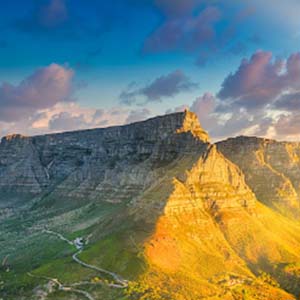
Public Transport in South Africa
Compared to transport in other countries, the public transportation in South Africa is expensive, quite limited and can even be considered dangerous. For this reason, many expats opt for their own private transportation via either renting a car or by owning a vehicle.
Trains: The South African rail system is called the Shosoloza Meyl and connects most major towns. The Metrorail system is state-owned transport that connects suburbs into cities, servicing commuters. There are more luxurious trains, like the Blue Train which connects Cape Town and Pretoria, which require reservations long in advance. Other luxury trains for touring run between other major cities too, with more reliable but slower “name trains” running between other smaller population centres.
The majority of long-distance trains have dining cars and sleeping facilities. Foreigners travelling by train are advised to travel first class, which you must book 24 hours in advance.
Buses: There are long-distance bus services connecting all major cities – most are operated by Autonet. Autonet has 3 main services; Translux, which is a luxury service between cities; Transcity, a more standard service between cities; and Transtate, an economy service to towns and former homelands. You must book your bus travel 24 hours in advance.
There are also municipal bus services which run with old buses and minibuses. This is a cheap service but often runs behind schedule due to traffic conditions. Bus stations are not always safe for foreign travellers.
Taxis: Larger cities will have an abundance of taxis which many locals use for inter city travel. Taxis are often old, unreliable, and expensive with poor facilities. You must reserve them in advance from a number in the yellow pages directory. Hotels and colleagues may be able to recommend taxi services to you.
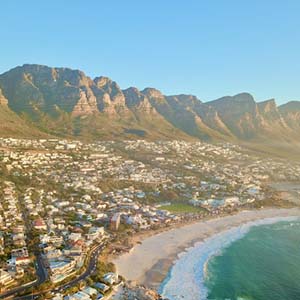
Social Environment
Within major South African cities there are well established expatriate communities. Additionally, fluency in English throughout the country assists social interaction between foreigners and South African residents. Friendships are easily made through colleagues and social clubs and organisations.
Understanding the people in South Africa
South Africans are friendly people but can be quite reserved. For this reason, friendships tend to grow from regular interactions in clubs, at work or through other friends. There is an abundance of opportunities for activities and pursuits due to the variety of climate and landscape in South Africa. This includes fishing, hiking, camping, mountain climbing and more.
Religion
South Africa benefits from freedom of religion and there is no official state church. Religion does, however, play an instrumental role in public affairs. Extensive social and welfare services are provided by the church and youth organisations and religious instruction is important for children in South Africa.
There are a great number of religions that are represented in South Africa. Your country’s embassy or consulate may be a good source of information on religious services that suit you and your family.
Social Customs
Customs in South Africa will vary depending on the group of people you are with. Ethnic groups will also play a role in the appropriate social customs for the situation. Visiting each other’s homes is common among friends, normally arranged in advance unless it is a close friendship. When entertaining at home, it is common to host a barbecue or braai. Social entertaining is also done via pool or tennis parties, or even at country clubs.
Greetings & Names
People living in South Africa will often use “Hello” or “good morning” as a common greeting. When leaving, there is rarely a goodbye, but an anticipation of a future meeting. A handshake is customary at the beginning of social interactions, but the type of handshake will differ depending on your company. Relatives and friends will often hug instead of a handshake, and it is not uncommon to see African men holding hands as they walk together. It is also normal to give business cards to each person at the first meeting, which should be kept simple and include your name, title and contact details.
When meeting for the first time, introductions will be made in order of seniority. To be polite, you should lengthen greetings with questions about family or other social topics. You should address colleagues as “Mr,” “Mrs” or “Ms” until asked to do otherwise.
First names and nicknames are commonly used between friends. In some cases, it’s a good idea to refer to an older African as “father” or “mother”. It is best to follow a colleague’s lead if you are unsure on what to call someone.
Alcohol Consumption
As one of the world’s leading producers of fine wines, wine is a popular drink in South Africa and comes in a variety of types and prices. Beer is also popular, with local as well as imported brands available. Beer and wine are sold in supermarkets and other alcohols are sold in “Bottle Shops”, which conduct business between 9 am and 10 pm on weekdays and 9 am – 5 pm on Saturdays. Selling alcohol is prohibited on Sundays.
When attending a braai or barbecue or visiting a home, it is customary to bring a bottle of spirits or some food as a gift for the host. There will be dietary and alcohol restrictions in some households depending on their religious beliefs.

Etiquette
As it is home to several distinct cultures, there are many different traditions and practices across South Africa. You should pay attention to the conventions of the group you are in. Generally, receiving gifts with both hands and covering a yawn with your hand are both seen as polite. Spitting in public is seen as rude. Elders are typically shown more respect at social and business gatherings. When attending a gathering, guests should greet each attendee on arrival and shoes may be asked to be removed when at a private home.
Tipping
It is expected that when dining out in South Africa that you tip the restaurant waiting staff around 10% of the bill. You should give the tip in cash directly to your server rather than leaving it on the table. If dining in larger groups, service charge could already be included and adding an extra tip would be only for exceptional service. Taxi drivers also expect a tip of around 10% and baggage porters around R 3-5 per bag.
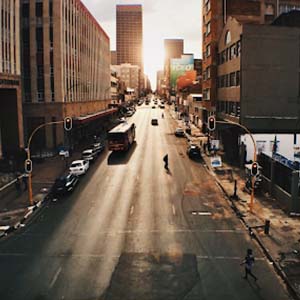
Interested in information on another country? Take a look at our other International Relocation guides.
Great customer Experiences start here
Very pleasent and helpful. Nothing too much trouble.
Mr M H moved from London, UK to Toronto, Canada
Very helpful and patient even when things got packed that we had to get out again!
Mr M E moved from Enfield, UK to Dorset, UK
Thanks to Graham, Nick and the entire crew!
Mr C D M moved from UK to Singapore
Friendly and helpful crew.
Ms T W moved from USA to Cambridgeshire, UK
